Filter by
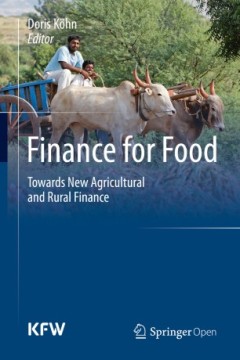
Finance for food : towards new agricultural and rural finance
This book reflects the current state of discussion about agricultural and rural finance in developing and transition countries. It provides insight into specific themes, such as commodity value chains, farm banking, risk management in agricultural banking, structured finance, crop insurance, mobile banking, and how to increase effectiveness in rural finance. Case studies illustrate various aspe…
- Edition
- -
- ISBN/ISSN
- 9783642540349
- Collation
- xii, 295p. : ill
- Series Title
- -
- Call Number
- 630.681 FIN f
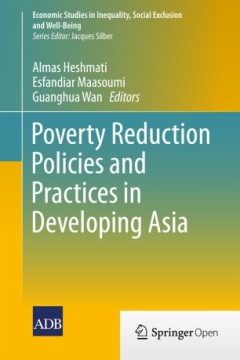
Poverty reduction policies and practices in developing Asia
This book looks at the major policy challenges facing developing Asia and how the region sustains rapid economic growth to reduce multidimensional poverty through socially inclusive and environmentally sustainable measures. Asia is facing many challenges arising from population growth, rapid urbanization, provision of services, climate change and the need to redress declining growth after the g…
- Edition
- -
- ISBN/ISSN
- 9789812874207
- Collation
- xi, 314p. : ill.
- Series Title
- -
- Call Number
- 338.95 POV p
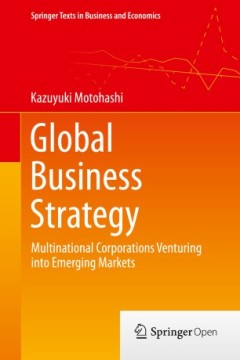
Global business strategy : multinational corporations venturing into emerging…
This book presents theories and case studies for corporations in developed nations, including Japan, for designing strategies to maximize opportunities and minimize threats in business expansion into developing nations. The case studies featured here focus on Asia, including China and India, and use examples of Japanese manufacturers. Five case studies are provided, including Hitachi Construct…
- Edition
- -
- ISBN/ISSN
- 9784431554684
- Collation
- xvii, 259p. : ill.
- Series Title
- -
- Call Number
- 658.18 MOT g
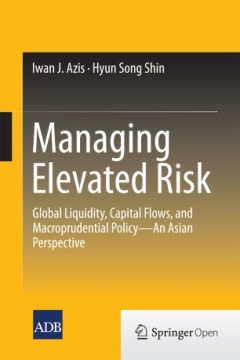
Managing elevated risk : global liquidity, capital flows, and macroprudential…
This book discusses the risks and opportunities that arise in Emerging Asia given the context of a new environment in global liquidity and capital flows. It elaborates on the need to ensure financial and overall economic stability in the region through improved financial regulation and other policy measures to minimize the emergent risks. "Managing Elevated Risk: Global Liquidity, Capital Flows…
- Edition
- -
- ISBN/ISSN
- 9789812872845
- Collation
- xviii, 124p. : ill.
- Series Title
- -
- Call Number
- 337 AZI m
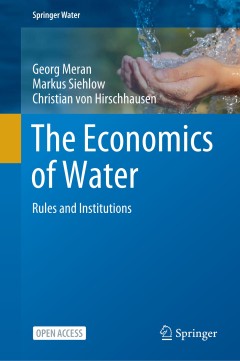
The economics of water : rules and institutions
This open access textbook provides a concise introduction to economic approaches and mathematical methods for the study of water allocation and distribution problems. Written in an accessible and straightforward style, it discusses and analyzes central issues in integrated water resource management, water tariffs, water markets, and transboundary water management. By illustrating the interplay …
- Edition
- -
- ISBN/ISSN
- 9783030484859
- Collation
- xvii, 301p. : ill.
- Series Title
- -
- Call Number
- 333.91 MER e

Words, objects and events in economics : the making of economic theory
This open access book examines from a variety of perspectives the disappearance of moral content and ethical judgment from the models employed in the formulation of modern economic theory, and some of the papers contain important proposals about how moral judgment could be reintroduced in economic theory. The chapters collected in this volume result from the favorable reception of the first vol…
- Edition
- -
- ISBN/ISSN
- 9783030526733
- Collation
- xvi, 226p. : ill.
- Series Title
- -
- Call Number
- 330.1 WOR w
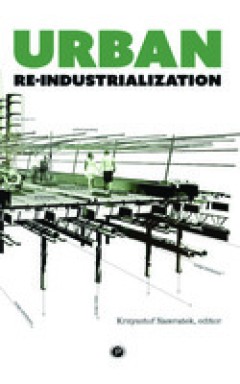
Urban re-industrialization
Urban re-industrialisation could be seen as a method of increasing business effectiveness in the context of a politically stimulated ‘green economy’; it could also be seen as a nostalgic mutation of a creative-class concept, focused on 3D printing, ‘boutique manufacturing’ and crafts. These two notions place urban re-industrialisation within the context of the current neoliberal economi…
- Edition
- -
- ISBN/ISSN
- 9781947447035
- Collation
- 186 p.; 23 cm.
- Series Title
- -
- Call Number
- 338.9 URB u
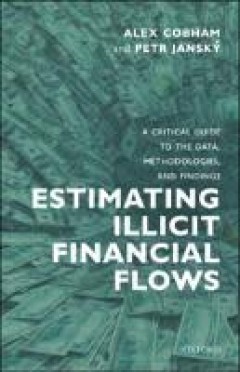
Estimating illicit financial flows: a critical guide to the data, methodologi…
Illicit financial flows constitute a global phenomenon of massive but uncertain scale, which erodes government revenues and drives corruption in countries rich and poor. In 2015, the countries of the world committed to a target to reduce illicit flows, as part of the UN Sustainable Development Goals. But five years later, there is still no agreement on how that target should be monitored—to s…
- Edition
- -
- ISBN/ISSN
- 9780198854418
- Collation
- pages cm
- Series Title
- -
- Call Number
- 338.9 COB e
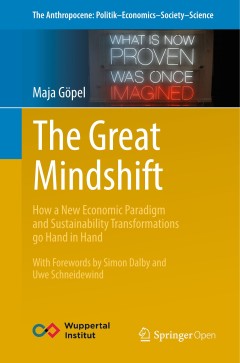
The great mindshift : how a new economic paradigm and sustainability transfor…
Sustainable development is the 21st Century’s wicked problem. After 40 years into this agenda have reversed only few unsustainable trends we hear the call for a paradigm shift, transformation, radical change or system innovations in order to finally change course. But what does this actually mean? And how do we put it into practice? This book describes the path ahead. It combines system tr…
- Edition
- -
- ISBN/ISSN
- 9783319437668
- Collation
- xxiii, 184p. : ill.
- Series Title
- -
- Call Number
- 338.927 GOP g
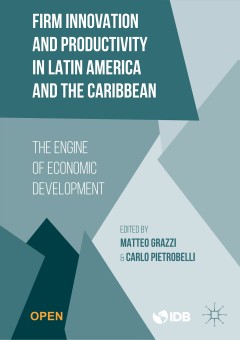
Firm innovation and productivity in Latin America and the Caribbean : the eng…
This volume uses the study of firm dynamics to investigate the factors preventing faster productivity growth in Latin America and the Caribbean, pushing past the limits of traditional macroeconomic analyses. Each chapter is dedicated to an examination of a different factor affecting firm productivity - innovation, ICT usage, on-the-job-training, firm age, access to credit, and international lin…
- Edition
- -
- ISBN/ISSN
- 9781349581511
- Collation
- xxv, 346p. : ill.
- Series Title
- -
- Call Number
- 338.9 FIR f
 Computer Science, Information & General Works
Computer Science, Information & General Works  Philosophy & Psychology
Philosophy & Psychology  Religion
Religion  Social Sciences
Social Sciences  Language
Language  Pure Science
Pure Science  Applied Sciences
Applied Sciences  Art & Recreation
Art & Recreation  Literature
Literature  History & Geography
History & Geography